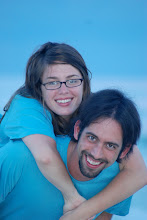
For those who don’t know, The Unlikely Disciple is a firsthand account of the journey of Kevin Roose, an English major and journalist from Brown University who transferred to Liberty University in the spring semester of 2007. Roose wasn’t coming to my alma mater with the happy anticipation that I suppose is common for most young evangelicals who enroll at Falwell’s school. But then, Kevin Roose is not an evangelical. Roose has described himself as “God ambivalent” and though he refers frequently to his Quaker heritage in this book, he is not a “true Christian” by most evangelical standards. He transferred to Liberty after realizing that conservative, evangelical Christianity was entirely other to his liberal, left wing, Ivy League world. He came to Liberty as a mole, an undercover journalist, and his goal was to show the world what Liberty University was “really like.”
To be frank, it would be impossible for me to write down all of my thoughts on this book. Even if I could, it would take you far too long to read. That being the case, I’m simply hoping this review will stimulate conversation. Furthermore, a published review, found at http://www.christianitytoday.com/bc/columns/bookoftheweek/090323.html is a fantastic summary of this work. I see no reason to reinvent this already well-designed wheel. Instead, I’ll just offer a few of my thoughts. If you’ve read the book (or even if you haven’t) I’d love to talk about it with you.
- First, this is undoubtedly one of the best books I have ever read. The book reads like a novel, and Roose is an incredible writer. He weaves his words with a brilliance matched only by his wit, humor, and insight. I could not put this book down.
- Roose is brutally honest throughout the entire book. As someone who was initially unfamiliar with the cultural memes of modern evangelicalism, Roose’s immersion into the Liberty community produces some humorous stories. However, it also provokes him to a few indictments of modern evangelicalism. Some of these are justified (indeed some of them I have made myself) while other conclusions are little more than first impressions that fail to comprehend the entire picture.
- Roose’s dorm provided him with quite a variety of people. Roose made his home on Dorm 22 while living on a hall with a hyperactive, bubbly fellow, a few “rebels” by Liberty’s standards, a nonbeliever, an angry racist from the deep south and a host of other personalities. While this led to some unfortunate moments, it seemed to demonstrate to Roose the reality that I learned during all four years at Liberty—no two Liberty students are exactly alike.
- When one considers this, it makes the act of branding all Liberty students with any particular label a thoughtless move. All these things considered, I find it odd that Roose frequently labels Liberty students as “homophobic” and consistently fails to distinguish between the disapproval of a lifestyle and the hatred of and fear of a person or group of people. This is an example of the chief weakness of Roose’s book—he frequently criticizes the conclusions of evangelicals when he finds them repugnant, yet fails to realize that the only basis for many of his criticisms are his own secular assumptions.
- The book has been well received by both sides, the unfair criticisms of Liberty’s administration notwithstanding (Roose remains vigilant in his rejection of evangelical Christianity and conservatives don’t like unhappy endings). I am profoundly struck by how much good this book can do for America’s culture war. Every secular liberal and hard-line religious conservative (and everyone in between) should read this book. There is much we can learn.
- Roose makes several observations and offers several insights, especially toward the end of the book. Many of these are certainly worth reading, but I think it’s better if I simply share one of his final thoughts. “While I don’t think you’re right [addressing evangelical Christians], I do think I was wrong.” (paraphrase) He admits to being wrong about many of his assumptions about what conservative evangelicals were like, and it seems that his entire Liberty experience had a very humanizing effect.
- What surprised me most about the book was how much I learned about Liberty, and perhaps that is instructive. I can give you the inside scoop on Liberty, but it’s based on my experiences, and my perceptions of the average Liberty student, which are influenced by my circle of friends within the Liberty community. On the one hand, I can appreciate some of Roose’s conclusions, especially when one considers the people he met during his semester here in Lynchburg. On the other hand, I think it’s good to realize that calling one semester of the freshman foundational courses a “well-rounded look” at Liberty University is a little like saying the Travel Channel provides you with an “authentic experience” of the Scottish countryside.
Overall, I think this book will do much good for the culture war, the country, and Liberty University. I don’t agree with all of Roose’s conclusions, but I am thankful for his honesty and his open-mindedness. I hope that Liberty students who read the book will take his criticisms to heart, some of which are timely, appropriate and humbling. I hope that people of other faiths, as well as Christians of a more liberal persuasion will realize that evangelical Christianity is an inherently good thing, not a cultic band of hypocrites or a wart to be removed. Most of all, I hope wise and discerning people will use the story of this “unlikely disciple” to realize that submission to stereotypes is easy; but honestly dealing with fellow human beings on their terms is a challenging task that is not without its rewards.


